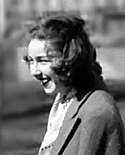Flannery O'Connor Quote
All the sentences in Madame Bovary could be examined with wonder, but there is one in particular that always stops me in admiration. Flaubert has just shown us Emma at the piano with Charles watching her. He says, She struck the notes with aplomb and ran from top to bottom of the keyboard without a break. Thus shaken up, the old instrument, whose strings buzzed, could be heard at the other end of the village when the window was open, and often the bailiff’s clerk, passing along the highroad, bareheaded and in list slippers, stopped to listen, his sheet of paper in his hand. The more you look at a sentence like that, the more you can learn from it. At one end of it, we are with Emma and this very solid instrument whose strings buzzed, and at the other end of it we are across the village with this very concrete clerk in his list slippers. With regard to what happens to Emma in the rest of the novel, we may think that it makes no difference that the instrument has buzzing strings or that the clerk wears list slippers and has a piece of paper in his hand, but Flaubert had to create a believable village to put Emma in. It’s always necessary to remember that the fiction writer is much less immediately concerned with grand ideas and bristling emotions than he is with putting list slippers on clerks.
All the sentences in Madame Bovary could be examined with wonder, but there is one in particular that always stops me in admiration. Flaubert has just shown us Emma at the piano with Charles watching her. He says, She struck the notes with aplomb and ran from top to bottom of the keyboard without a break. Thus shaken up, the old instrument, whose strings buzzed, could be heard at the other end of the village when the window was open, and often the bailiff’s clerk, passing along the highroad, bareheaded and in list slippers, stopped to listen, his sheet of paper in his hand. The more you look at a sentence like that, the more you can learn from it. At one end of it, we are with Emma and this very solid instrument whose strings buzzed, and at the other end of it we are across the village with this very concrete clerk in his list slippers. With regard to what happens to Emma in the rest of the novel, we may think that it makes no difference that the instrument has buzzing strings or that the clerk wears list slippers and has a piece of paper in his hand, but Flaubert had to create a believable village to put Emma in. It’s always necessary to remember that the fiction writer is much less immediately concerned with grand ideas and bristling emotions than he is with putting list slippers on clerks.
Related Quotes
About Flannery O'Connor
She was a Southern writer who often wrote in a sardonic Southern Gothic style and relied heavily on regional settings and grotesque characters, often in violent situations. An unsentimental acceptance or rejection of the limitations, imperfections or differences of these characters (whether attributed to disability, race, crime, religion or sanity) typically underpins the drama.
Her writing reflects her Roman Catholic faith and frequently examines questions of Catholicism-defined morality and ethics. Her posthumously compiled Complete Stories won the 1972 U.S. National Book Award for Fiction and has been the subject of enduring praise.
